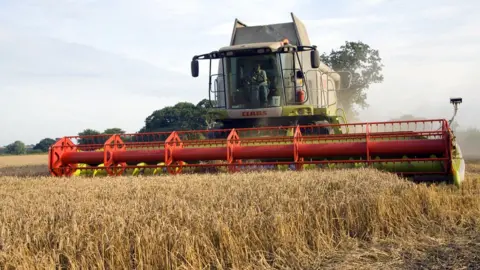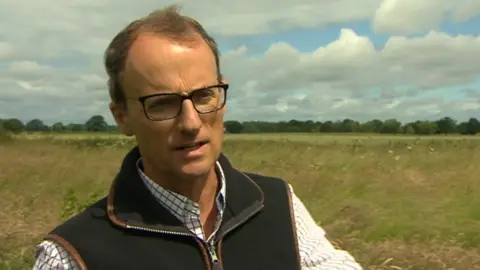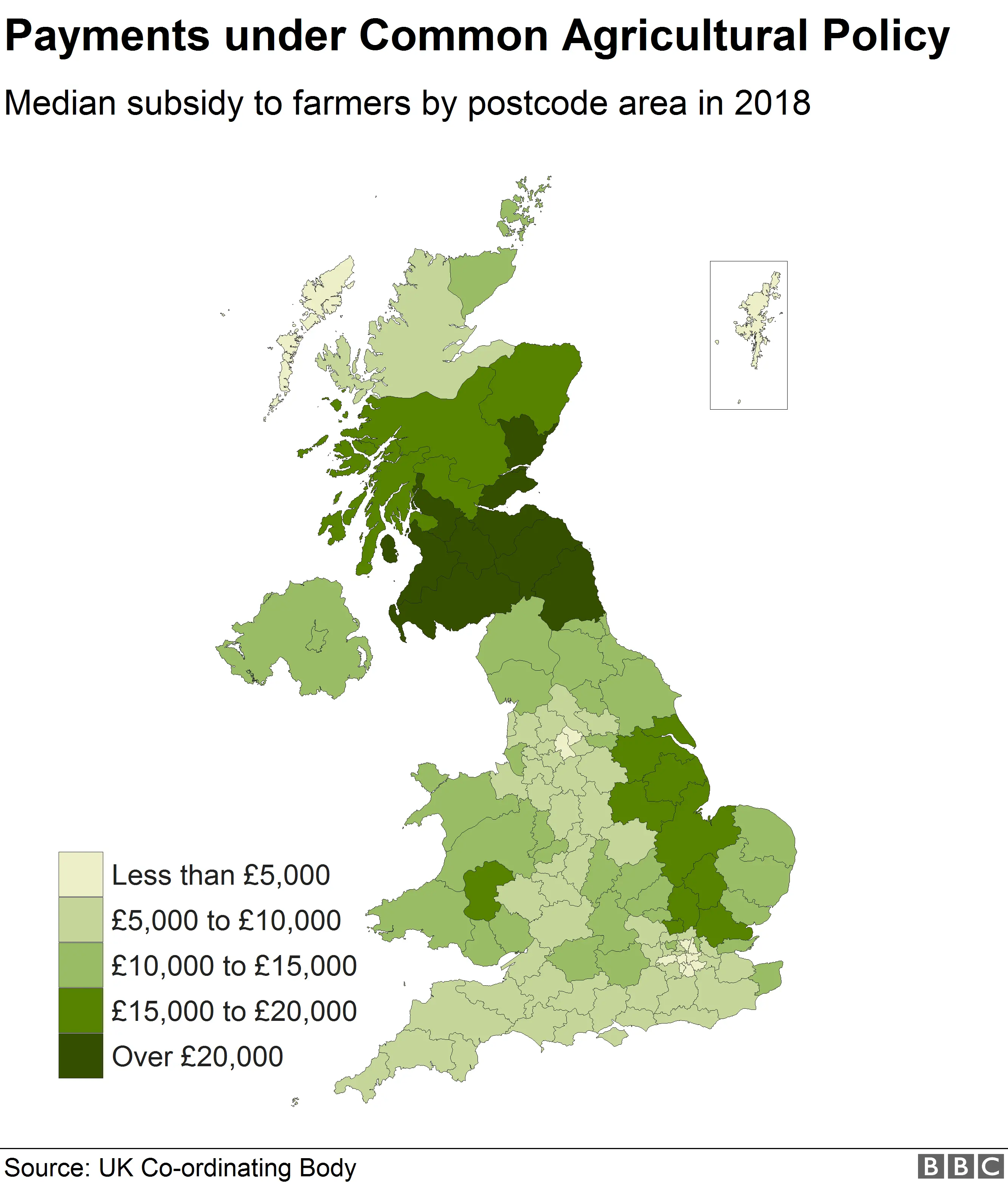Brexit: EU subsidy loss 'could wipe out farms'
 Getty Images
Getty ImagesWith three months to go before the UK could leave the European Union (EU), farmers say they still face uncertainty about future subsidy levels.
Last year farmers received £3.5bn in financial support through the EU's Common Agricultural Policy (CAP).
One farmer from York said he feared farms could soon be "wiped out like the coal industry".
The government said farmers had been told subsidy levels would be maintained until the next general election.
But the National Audit Office said farmers had been left unable to plan for the future and the main farming union called for "cast-iron commitments" from the government.
'Pick NHS over farmers'
CAP funding is one of the EU's biggest policies with a Europe-wide budget worth more than £50bn a year.
The subsidies are designed to support the farming industry and help farmers and landowners maintain their land.
Some farmers have said without long-term guarantees about future subsidy levels, farms could disappear from the landscape.
"We could be wiped out like the coal industry," said Roger Hobson, whose 4,500-acre farm near York qualifies for a subsidy worth £100,000 a year.
"This is not just about growing food, these subsidies help us improve the landscape and protect endangered species.
"What we fear is that in the future the farm industry will have to go to the government and compete for funding alongside the NHS and other public services.
"In that situation the government is always going to pick the NHS over farmers."

Analysing more than 175,000 individual payments made to farmers in the UK last year, BBC News has found:
- Farmers and landowners received £3.5bn in individual payments from CAP, an increase from £2.8bn in 2016
- Farmers in the East of England and Scotland received the highest individual subsidies, typically worth more than £14,000 each
- Scotland is the part of the UK that receives the largest amount of overall CAP funding, worth £630m last year
- Natural England, a government organisation, was the biggest recipient of an individual subsidy last year, receiving £15m


In plans set out by the environment secretary Michael Gove last year, the UK government said it would guarantee current funding levels for farmers up until 2022.
Farmers and landowners would then receive payments for "public goods", such as maintaining access to the countryside and planting meadows.
A report published last month by the National Audit Office (NAO) said 42% of UK farmers would have made a loss between 2014 and 2017 without direct payments from the EU.
Keith Davis from the NAO said the government still had not told farmers exactly how the new system would operate after Brexit.
"We don't know what the government is going to pay for, and we don't know how much they'll pay.
"So at the moment farmers aren't in a position to be able to plan for the future" said Mr Davis.
A spokeswoman for the National Farmers Union (NFU) said: "Farmers and growers manage more than 70% of the UK landscape and play a fundamental role in providing safe, traceable and affordable food as well as environmental and economic benefits for the nation.
"We need clear and cast-iron commitments from this government on how they plan to back British food and farming."
A spokeswoman for the Department for Environment, Food and Rural Affairs said: "We've been clear that we will maintain the same funding for farmers until the end of this Parliament, expected in 2022.
"This will apply whether the UK leaves the EU with or without a deal.
"Our Agriculture Bill is our greatest opportunity to reset the agricultural sector for a new generation of farmers and land managers, breaking away from the EU's Common Agricultural Policy. The Bill will be brought back to Parliament as soon as possible."
